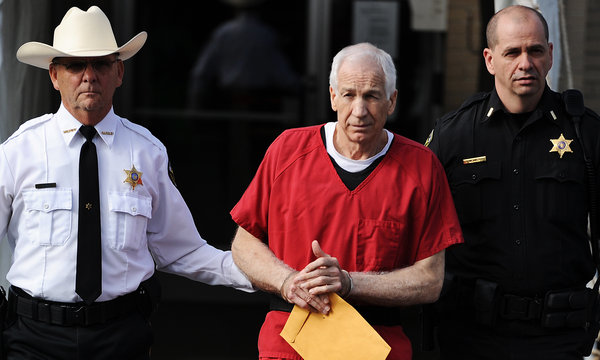Governor Tom Corbett and other legislative leaders have appointed lawyers and experts to the Task Force on Child Protection, a new panel established to study Pennsylvania’s child abuse laws and to propose the necessary changes. The Task Force will announce its findings and recommendations at the end of November. It is clear that the Task Force must advocate for certain changes in order to better protect the children of Pennsylvania, which may include: requiring internal reporting procedures within an institution to be as up-to-date and clear as possible, requiring all who work in the close vicinity of children to report all suspected abuse to the appropriate agency, and establishing minimum training requirements for state mandated reporters.
The Need for Reform of Child Abuse Reporting Laws in Pennsylvania
by: Christina Zanic, Juris Blog Contributor
On Tuesday, Oct. 9, 2012, Judge John Cleland handed down Jerry Sandusky’s prison sentence, which has been much anticipated since his conviction of 45 counts of child sexual abuse in June. Sandusky was ultimately sentenced to 30–60 years behind bars, effectively a life sentence for the 68-year-old former Penn State assistant coach. In the wake of the scandal, many are left questioning how a man like Sandusky, who was consistently in the public eye, could get away with a systematic pattern of child abuse spanning a 15-year period, some of which even occurred on the University campus.
One question that has weighed heavily on the minds of Pennsylvania legislators is whether the current state of child abuse reporting laws has operated to shield unseen acts of child abuse. The provision of the Pennsylvania Child Protective Services Law that was at the very center of the Penn State scandal is 23 Pa. Cons. Stat. § 6311 (2012). According to that provision, certain individuals only have a requirement to report suspected or known child abuse to their superiors, and not to the proper child protection agency. Unfortunately, this provision permits the passing off of responsibility up the chain of command, without ever ensuring that the appropriate action is taken. At Penn State, no one reported the suspected abuse to Centre County Children and Youth Services. Further, there was no attempt to investigate the allegations, to identify the victims, or to protect those victims from similar conduct in the future.
There are many different theories that may account for the failure to report at Penn State. First and foremost, the Penn State community is fiercely loyal to one another and to its school, so it would not be surprising for the first instinct to be to protect one of its own. There is also a possibility of sheer disbelief that an individual as well respected and philanthropic as Sandusky, and who had such a long and celebrated coaching career, would be capable of such heinous acts. Further, it’s possible that no one wanted to be remembered as being responsible for tarnishing the Penn State dynasty. Lastly, and most likely, everyone who had knowledge of the suspected child abuse may have figured that someone else with knowledge would do something, even if they personally did nothing.
